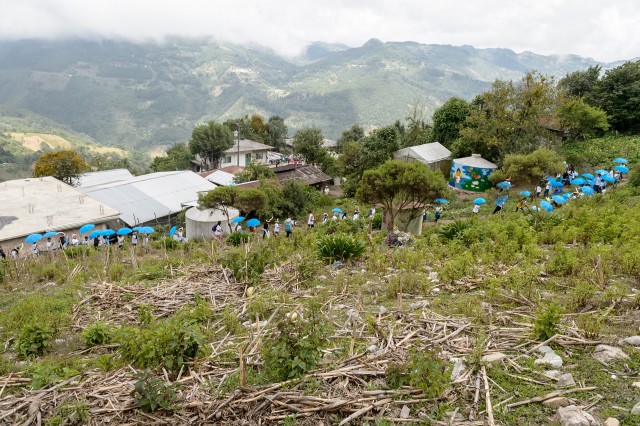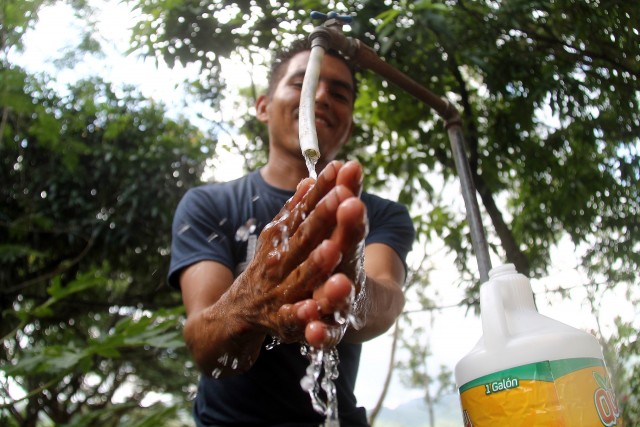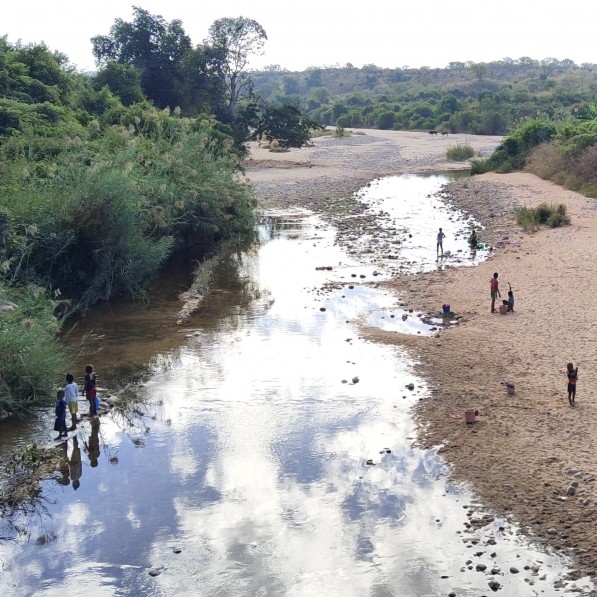Earth Day 2024: What’s the Status?

Since the 1970s, Earth Day has been celebrated every year on April 22, igniting a worldwide movement that has inspired billions to take action for a healthier planet. Yet in the last 50 years, we’ve seen a dramatic increase in water scarcity, pollution, biodiversity loss, and environmental degradation—all stemming from human activity and inaction.
Even today, when 2 out of 3 people worldwide can freely access the internet,1 knowledge and awareness gaps are still apparent. According to a recent survey we conducted, 1 in 3 Canadians are not even aware that our country is facing a water crisis. Eco-anxiety is more present than ever as forest fires, droughts, and countless other water and climate-related disasters make headlines every day, driving fear instead of action.
The bittersweet truth is that whatever comes next, the Earth will endure. Humanity, on the other hand, won’t survive without a healthy planet. Our commitment to a more sustainable world might benefit from a paradigm shift: we need the Earth more than it needs us.
You are not Atlas carrying the world on your shoulders. It is good to remember that the planet is carrying you.
Water is life. Yet in 2024, around 50% of the world’s population will experience severe water scarcity for at least part of the year.2 Factoring in climate change, this number is only expected to increase over time.3
The water and climate crisis will affect each and every one of us in some way, and that’s why it’s everyone’s responsibility to act and contribute to some form of positive change. And in many areas, this change is already in motion.
In the last decade:
- The proportion of the world’s population with access to safely managed drinking water increased from 69 per cent to 73 per cent,4 despite population growth.
- Renewable energy has undercut fossil fuels as the world’s cheapest source of energy.5
- More than 9,000 companies, over 1,000 cities, more than 1,000 educational institutions, and in excess of 600 financial institutions have pledged to take rigorous, immediate action to halve global emissions by 2030.6
These milestones are the result of collective action: governments, corporations, civil society organizations, and individuals working together.

From reducing your water or carbon footprint to supporting policies in favour of sustainable resource management, every action matters. But before undertaking a change, big or small, individual or organizational, it’s important to assess your own capacity for change.
In 2023, One Drop embarked on a climate action plan to assess and manage climate risks as well as opportunities. We’re very grateful to be partnering with Clearsum, a Canadian strategy and business management advisory firm specialized in climate change, whose guidance will be invaluable as we navigate the complexities of the water and climate crisis.
Supporting environmentally friendly businesses and initiatives is a small step that can make an enormous difference. Luckily, finding them is easier than you think.
1% for the Planet is an international organization whose members contribute at least one percent of their annual revenue to environmental causes. You might even find some of these businesses in your area by clicking here.
1% for the Planet is also a global network with thousands of businesses and environmental organizations working together to support people and the planet. In 2024, One Drop is proud to join their ranks as an Environmental Partner alongside other vetted environmental organizations. We’re thrilled to connect with these amazing groups and explore opportunities to work together toward a wide array of water and climate solutions.
This Earth Day, let's be inspired by the causes it champions—not discouraged by the challenges that we collectively face. Even when the future feels uncertain, remember: your actions matter. Around the world, collective efforts are already blossoming into diverse solutions. Together, we can cultivate a healthy, sustainable planet for generations to come.

1Statista
2IPCC, Sixth Assessment Report Working Group II, 2022
3WMO, United in Science 2023 - Sustainable development edition
4The Sustainable Development Goals Report 2023: Special Edition, United Nations.
5IRENA (2021), Renewable Power Generation Costs in 2020, International Renewable Energy Agency, Abu Dhabi.
6United Nations